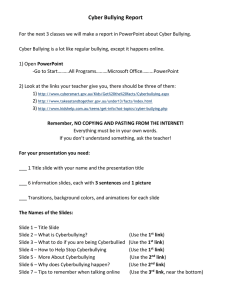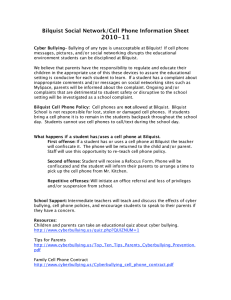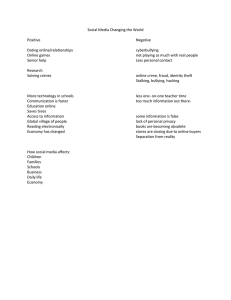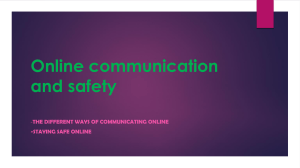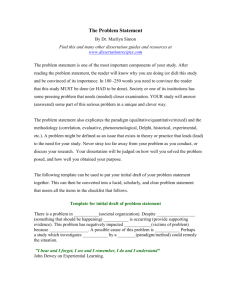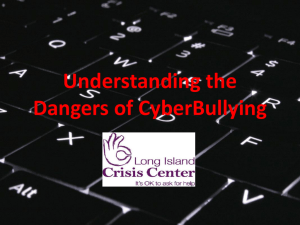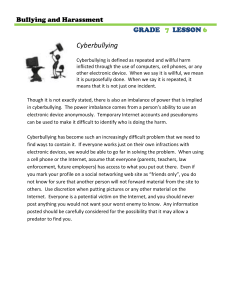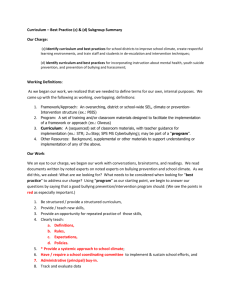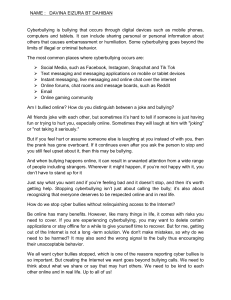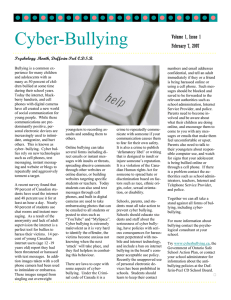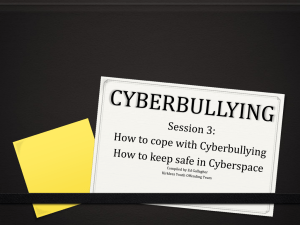AAFC Social Media Guide
advertisement
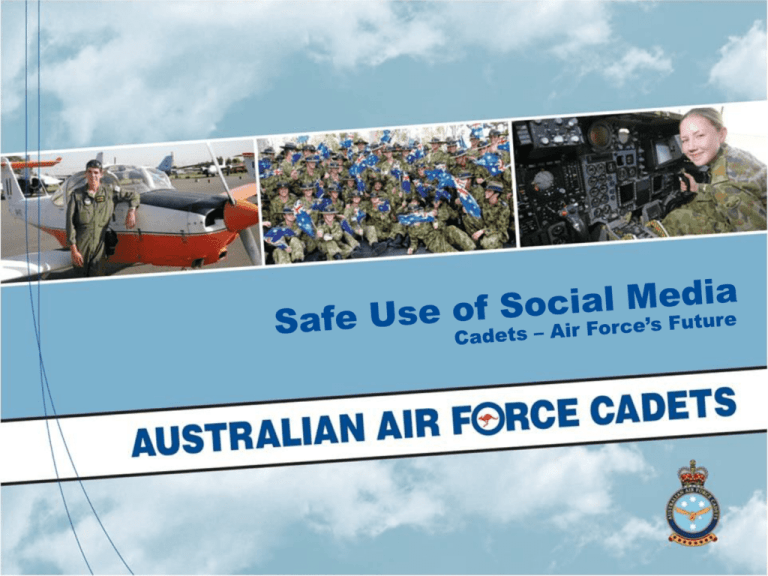
Introduction • Everyone knows that the internet is a great source of information for a wide range of topics and social networks are widely used across the AAFC as a means of communication. • It is important to familiarise yourself with social media safety so you don’t leave yourself open to possible repercussions on a personal and/or cadet level. Principles to live by • Cadets and staff are reminded that any information placed on social networking sites is instantly public information and can be used by anyone without their permission or knowledge. Who should have access to your personal sites? • Do I know this person and am I happy that they will have access to my personal information? • Will this person respect the personal information I post and keep it private? • Would I be happy for the media to access and publish my private information and imagery? Did you know… • that information published to the internet may be cached on servers and publicly available notwithstanding subsequent deletions or cancellation of social networking accounts? Protect your privacy • Use strong, unique passwords • Never click suspicious links – even if they appear to be from your friends • Watch out for phishing emails • Think about the amount of personal information you share online • Think before you post • Be wary of strangers • Check the sites' privacy policies Cyber Bullying • Did you know that the same rules apply online as in the ‘real world’ about how to treat other people? No-one has the right to bully another person. At its most serious, cyberbullying is a criminal offence and can be investigated by the police. • If you see or know about cyberbullying happening to a friend, support them and report the bullying. Cyber Bullying • Don’t forward on messages or pictures that may hurt or be upsetting to someone. Even though you may not have started it, you will be seen to be part of the cyberbullying cycle. • Remember to treat others as you would like to be treated when communicating online. How to use protection • Positively identify your friends’ requests before accepting • Be aware of who you’re talking to and what they’re asking • Google yourself to see what you can do to decrease your internet profile • Lock your photo albums • Check what your friends are posting about you How to use protection • Think before you post. Who are you sharing the information with and how will it affect your reputation? Once it is live, it can’t be retracted and will remain on file even if deleted. • If you need to complain about AAFC, school or home, is Facebook the place to do it? Try to avoid • Posting photos or information regarding Cadet activities etc • Post information on your future intentions in regard to travel, holidays, social activities. • Joining online political groups or expressing political beliefs Do Not • Do not ‘Friend Request’ Staff as it compromises Staff ethical behaviour • Do not talk shop about the AAFC Conclusion • Information that you post on the internet may help identify your personal/work vulnerabilities which certain groups may use to take advantage of you and your friends or family. • By being aware of the dangers and following simple guides you can reduce the risk of getting into trouble.
